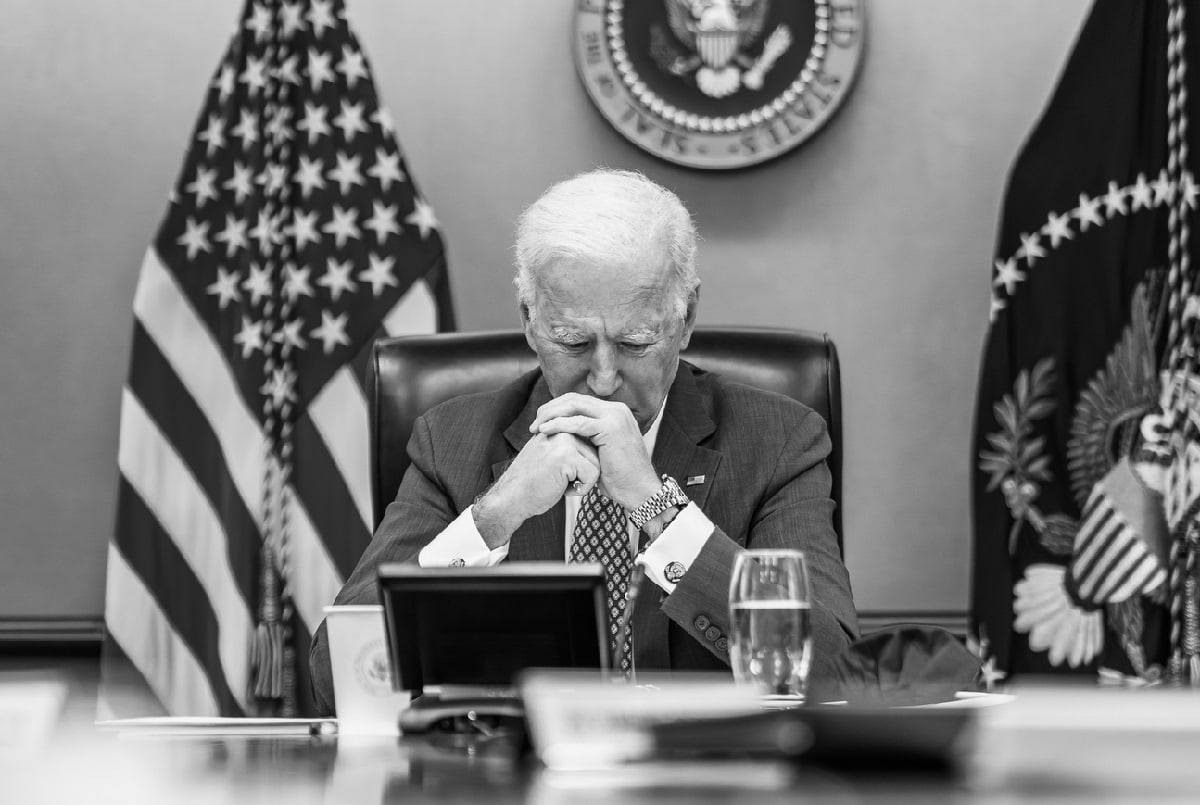For nearly 50 years, Joe Biden has gotten it wrong on foreign policy. In dealing with Russia, he has a reputation for prioritizing tough talk over meaningful actions – an approach that only benefits the Kremlin. No wonder so many anticipate his June 16 meeting with Russian strongman Vladimir Putin in Geneva with trepidation.
The Administration says the summit is intended to restore “stability to the US-Russia relationship.” But the meeting comes after a slew of Russian cyber intrusions and conspicuously little U.S. response. Not only is the meeting unlikely to produce results, but it also risks bolstering Putin’s image within Russia and on the world stage.
The list of recent Russian misdeeds is lengthy. It includes the Kremlin’s attempts to influence U.S. elections and Russian hackers’ disruptions of U.S. energy infrastructure. Elsewhere, Russia has engaged in poisoning activist Alexei Navalny, Black Sea bullying, and challenging the territorial integrity of Ukraine.
To say that US-Russian relations are not congenial is an understatement. Russian officials have publicly stated that relations are worse than during the Cold War. As if to prove its hostility, the Kremlin hacked USAID just days after Secretary of State Tony Blinken and his Russian counterpart, Sergey Lavrov, met to discuss cooperation on issues of global stability.
Despite these provocations, Biden offered Putin a gift: the upcoming summit.
Biden’s pattern of strong words backed by weak actions has been on display all year. He has said that Vladimir Putin “will pay a price” for his efforts to undermine US elections and called Putin “a killer.” At the same time, however, Biden waived sanctions on Moscow’s Nord Stream 2 pipeline, despite bipartisan opposition in Congress and outrage from our Eastern European partners.
Biden has also refused to recognize the link between the Kremlin and the hacking operation that shut down the east coast’s Colonial Pipeline. Even where Biden has imposed sanctions for other provocations, they have been weak and insufficiently targeted at influential Russians.
This has been profoundly disappointing for those who hoped the Biden Administration might show more resolve against Russia than the Trump Administration’s mixed messaging. Instead, Biden seems to be following in the footsteps of his former boss, President Obama, who acquiesced to Russian aggression in Ukraine and Syria and ignored ample evidence of election meddling by the Kremlin in 2016.
All indications suggest that the Geneva summit will accomplish nothing in terms of improving Moscow’s behavior. But authoritarian leaders like Putin use summits with democratic counterparts to reenforce a sense of dominance among both domestic and international audiences. He will be pleased to exhibit himself on equal footing with a U.S. president, exploiting the meeting much as he did a February meeting with EU foreign policy chief Josep Borrell.
If Biden actually believes that a diplomatic meeting will result in a softer and kinder Putin, he is sorely mistaken. We know that he and Putin will discuss extending the New START treaty, despite years-long habitual Russian cheating on arms deals with the US. The Biden Administration also announced plans to discuss Russian human rights abuses during the summit, an area unlikely to change anytime soon. Putin may feign a reconciliatory stance to gain whatever concessions he can from Biden. But why should Putin alter his subversive behavior when he believes he is winning?
In light of Russia’s USAID hack, it would be far more prudent for Biden to cancel the summit and focus instead on hardening American cyber defenses, enhancing our own offensive cyber capabilities to respond to Russian cyber-attacks, and increasing the pressure on Putin’s regime more generally.
Unless the pain inflicted on Putin exceeds his perceived gains from fomenting chaos and undermining the international order, there is no reason for him to stop misbehaving. Biden’s dialogue-fixes-all approach has never worked on Russia and won’t work now. As other adversaries watch, Biden’s overreliance on words will only invite further foreign aggression.
Assuming the Geneva meeting goes ahead, what should Biden tell Putin?
It starts by Biden controlling the conversation and deciding to play hardball. Pleasantries will not do. Start and end with a listing of the wide array of Russia’s cyber misdeeds. Biden should categorically state that the U.S. will not tolerate Russian interference in America’s cyber networks and will respond with asymmetrical force when its networks are threatened. The cyber intrusions must end immediately. Hard stop. Any and all other issues become secondary, yet the US should make no concessions.
Unfortunately, the approach taken by Biden thus far does not inspire the confidence needed for a productive tough face-to-face conversation with Putin. If Biden wants to stand up to Putin, he must be prepared to back up his words with decisive actions. This president has a weak record of standing behind his rhetoric which ultimately emboldens not only Putin but all of America’s adversaries.
A visiting fellow at The Heritage Foundation, David R. Shedd is a former acting Director of the Defense Intelligence Agency.
Ivana Stradner is the Jeane Kirkpatrick Fellow at the American Enterprise Institute.

